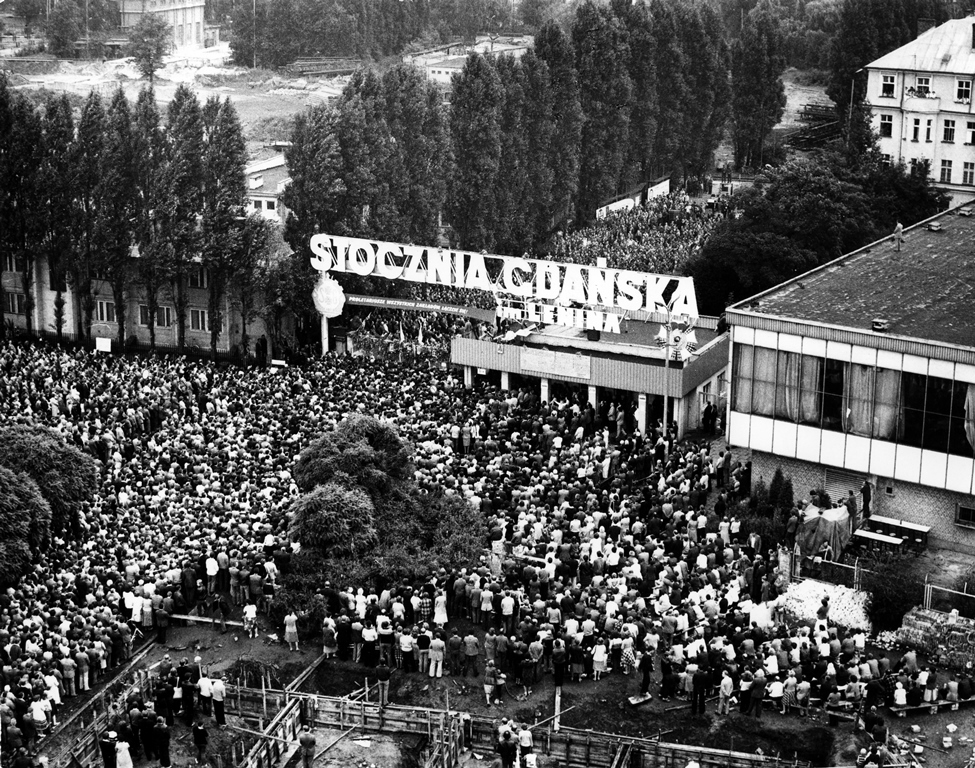In Polen wurde am 13. Dezember 1981 das Kriegsrecht verhängt. Das war die Antwort auf die Welle von Arbeiterstreiks, die 1980 in Danzig, Stettin, Breslau und Oberschlesien hunderttausende Menschen zusammenführte, auf die Gründung des Komitees für die Verteidigung der Arbeiter (KOR) und der unabhängigen Gewerkschaft Solidarność. Viele tausend Gewerkschaftsmitglieder wurden verhaftet und ohne Gerichtsverfahren interniert. Streiks und Demonstrationen wurden verboten. Die Solidarność hatte in kurzer Zeit zehn Millionen Mitglieder gewonnen. Sie entwickelte sich zu einer starken Bewegung, die für Meinungsfreiheit, Demonstrationsrecht und neue Konzepte in Wirtschaft, Gesellschaft und im Bildungswesen kämpften. Das Ringen der Solidarność in Polen war entscheidend für den Zusammenbruch des kommunistischen Systems und gab auch den Oppositionellen in der DDR Orientierung.

August-Strikes at the Gdansk Lenin Shipyard, 1980
© Wikimedia Commons/Zenon Mirota
Martial law was imposed in Poland on 13 December 1981. It was a response to a wave of workers’ strikes that drew hundreds of thousands of people together in Gdańsk, Szczecin, Wrocław and Upper Silesia in 1980 and led to the founding of the Workers’ Defence Committee (KOR) and the independent trade union Solidarność. Thousands of union members were arrested and detained without trial; strikes and demonstrations were banned. Solidarność gained ten million members in a short time. It developed into a powerful movement that fought for freedom of expression, the right to demonstrate and new concepts in business, society and education. The struggle of Solidarność in Poland was decisive for the collapse of the communist system and also provided orientation for opposition groups in the GDR.
